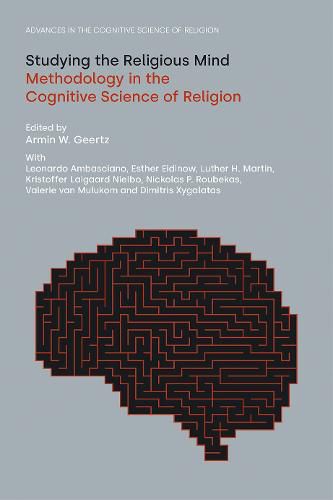Readings Newsletter
Become a Readings Member to make your shopping experience even easier.
Sign in or sign up for free!
You’re not far away from qualifying for FREE standard shipping within Australia
You’ve qualified for FREE standard shipping within Australia
The cart is loading…






The cognitive science of religion does not have its own methodology, and yet from the very beginnings of the discipline, methodology has defined it not only in relation to the general study of religion in the humanities but also to the sciences interested in the mind. Scholars of the cognitive science of religion are using a range of methodologies, borrowing mostly from the cognitive sciences and experimental psychology, but also from biology, archaeology, history, philosophy, linguistics, the social and statistical sciences, neurosciences, and anthropology. In fact, this multi-disciplinarity defines the cognitive science of religion. Such multi-disciplinarity requires hard work and truly interdisciplinary teams, but also continual reflections on and debates about the methodologies being used. In fact, no study of the cognitive science of religion worth its name can rely on only one methodology. Triangulation is standard, but often even more approaches are used.
This book consists of selected papers from the Journal for the Cognitive Science of Religion and the Journal of Cognitive Historiography. Each chapter demonstrates a particular method or group of methods and how those methods advance our knowledge of the religious mind from the ancient past up to today.
$9.00 standard shipping within Australia
FREE standard shipping within Australia for orders over $100.00
Express & International shipping calculated at checkout
The cognitive science of religion does not have its own methodology, and yet from the very beginnings of the discipline, methodology has defined it not only in relation to the general study of religion in the humanities but also to the sciences interested in the mind. Scholars of the cognitive science of religion are using a range of methodologies, borrowing mostly from the cognitive sciences and experimental psychology, but also from biology, archaeology, history, philosophy, linguistics, the social and statistical sciences, neurosciences, and anthropology. In fact, this multi-disciplinarity defines the cognitive science of religion. Such multi-disciplinarity requires hard work and truly interdisciplinary teams, but also continual reflections on and debates about the methodologies being used. In fact, no study of the cognitive science of religion worth its name can rely on only one methodology. Triangulation is standard, but often even more approaches are used.
This book consists of selected papers from the Journal for the Cognitive Science of Religion and the Journal of Cognitive Historiography. Each chapter demonstrates a particular method or group of methods and how those methods advance our knowledge of the religious mind from the ancient past up to today.